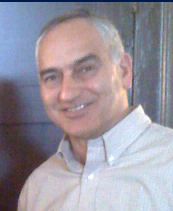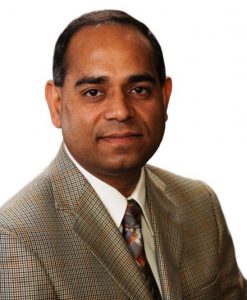We are LC Energy Storage.
Our team from the public and private sector along with academia partners has decades of experience in Research & Development (R&D) of the Molten Salt Energy Storage (MSES) system. We are in the process of standing up a High-Temperature Molten Salt Testing Facility to explore the use of high-temperature molten chloride salts that can produce greater thermodynamic efficiency and store more heat (compared to more commonly used nitrate salts) in the same mass of salt.
The facility’s “hot” tank temperature that holds the heated salt would be increased to 780°C for chloride salts, well above the current 560°C for nitrate salts in commercial MSES power plants. The Testing Facility would provide a controlled environment for the measurement of thermodynamic properties in a flowing fluid, measurement of corrosion rates in steel or other piping, and allow for the use of new materials to shield the hot tank wall from corrosion damage.
The Testing Facility would also allow for the investigation of new technology, which could include the replacement of steam Rankine cycles with highly efficient supercritical carbon dioxide (SCO2) Brayton cycle engines. The Testing Facility would be constructed at the UNLV Solar Site in southern Nevada with design expertise provided by our major industry partner, the Newport News Naval Shipyard in Virginia, and with help from the engineering faculty and students at the University of Nevada, Las Vegas.
Our Vision is the successful application of advanced, high-temperature molten salt technology as a thermal storage medium for large-scale solar energy systems.
This will allow further reductions in the range of 10% to 15% in cost of solar energy through integration with advanced power conversion cycles such as supercritical CO2 cycles, as well as around-the-clock power generation, even when the sun is not shining.

Our Team
aMIR kOUHESTANI
lakeChime PPRS, Inc.

Amir Kouhestani is CEO of lakeChime PPRS, Inc. He has a broad range of knowledge in the field of clean energy, with nearly 40 years of experience in project and program management, environmental remediation, decommissioning, interagency coordination, and energy regulatory processes. His federal service includes 15 years of service with the U.S. Army Corps of Engineers and the U.S. Nuclear Regulatory Commission (NRC). His consulting practice focuses on renewable energy storage, and the interconnectedness of energy, environment, and sustainability and their impact on national security. For the past six years, he has pursued interactions with federal sector on development of a special advanced renewable energy storage system, leading to securing funding for the past four years.
Mr. Kouhestani is an expert on the financing and commercialization of renewable energy storage systems. He understands how to navigate the legislative and regulatory processes and to overcome obstacles in securing public resources.
William Culbreth, Ph.D
University of Nevada, Las Vegas

Dr. William Culbreth, Department of Mechanical Engineering, University of Nevada, Las Vegas, has nearly 40 years of experience in the fields of Fluid Dynamics, Aerodynamics, Instrumentations and Sonar, Renewable Energy Storage Systems, and Systems Engineering Design and Fabrications. Professor Culbreth has been widely published, and has extensive experience with the national laboratories. Earlier in his career he worked for the Naval Research Laboratory in Washington, D.C. He earned a Mechanical Engineering degree from the California State Polytechnic University, Pomona, and his M.S. and Ph.D. degrees from the University of California, Santa Barbara.
Dr. Ram Gupta, Ph.D
Virginia Commonwealth University

Dr. Gupta is the Associate Dean for Research and a Professor in the School of Engineering at the Virginia Commonwealth University, Richmond, VA. Prior to joining VCU, during 2011-2014, he served as the Director of Energy for Sustainability Program at the National Science Foundation. This program supports fundamental research and education that will enable innovative processes for the sustainable production of electricity and transportation fuels. Processes for sustainable energy production must be environmentally benign, reduce greenhouse gas production, and utilize renewable resources. Projects include those related to biofuels, photovoltaic solar energy, wind energy, and advanced batteries for transportation. During 1995-2014, he was a professor of chemical engineering at Auburn University. His recent books are: Nanoparticle Technology for Drug Delivery (2006, Taylor & Francis), Solubility in Supercritical Carbon Dioxide (2007, CRC Press), Hydrogen Fuel: Production, Transport, and Storage (2008, CRC Press), Gasoline, Diesel and Ethanol Biofuels from Grasses and Plants (Cambridge University Press, 2010), and Compendium of Hydrogen Energy (Elsevier, 2015).
Dr. SAMAAN LADKANY, PE
University of Nevada, Las Vegas (UNLV)
Dr. Samaan George Ladkany, PE, Department of Civil Engineering, University of Nevada, Las Vegas, has more than 40 years of academic, teaching, and research experience in a wide range of Civil and Structural Engineering. He began his teaching career as a Research Assistant Professor, University of Wisconsin, Madison, Wisconsin. While at the University of Wisconsin, he was also a Project Associate, Super Conductive Energy Storage Project, sponsored by the U.S. Department of Energy. He subsequently spent nearly five years as an Assistant Professor at the Johns Hopkins University, Baltimore, Maryland. He joined the academic staff of the UNLV in 1988 as a professor of Civil and Structural Engineering.
Professor Ladkany has had extensive interactions with national and international research centers and laboratories, including research activities with the U.S. Army Research Office, the U.S. Department of Energy, NASA, the Office of Naval Research, and the Nevada Department of Transportation. Professor Ladkany is widely published, with more than a hundred research journal articles, conference papers, and research reports. He earned an undergraduate degree in Mathematics and a postgraduate degree and his Ph.D in Structural Mechanics from the University of Wisconsin, Madison, Wisconsin.
Justin Raade, Ph.D
Consultant
Dr. Justin W. Raade, Ph.D., formerly the Founder of Halotechnics, Inc., also serves as its Chief Executive Officer. Dr. Raade has over 10 years experience in cleantech and in commercializing the work of multidisciplinary R&D teams. He was a Staff Scientist at Symyx Technologies where he began his research with molten salt. He served as a Director at Halotechnics, Inc. Dr. Raade received a National Science Foundation Graduate Research Fellowship to support his doctoral research in Mechanical Engineering at UC Berkeley. His work there focused on applied thermodynamics and energy storage with hybrid systems using fuel cells and lithium polymer batteries. He has an undergraduate degree in Mechanical Engineering from MIT.